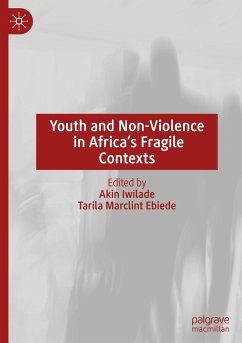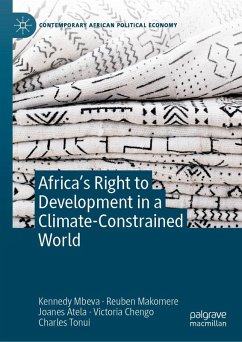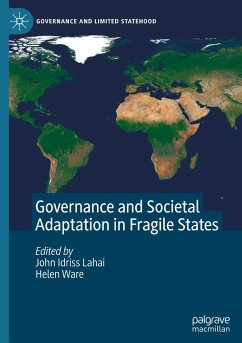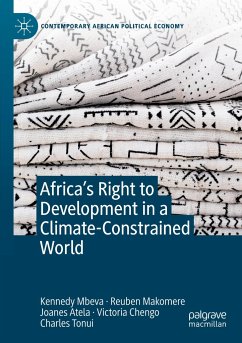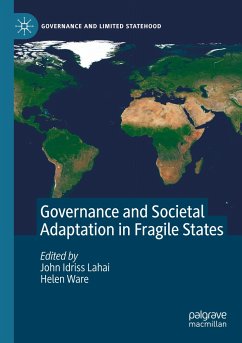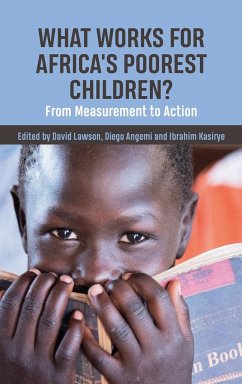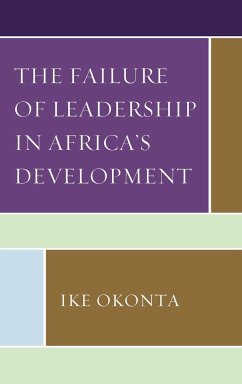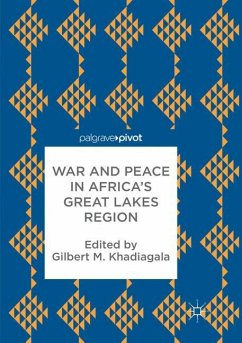
Youth and Non-Violence in Africa's Fragile Contexts
Versandkostenfrei!
Versandfertig in 6-10 Tagen
91,99 €
inkl. MwSt.

PAYBACK Punkte
46 °P sammeln!
This book makes an important contribution to the conflict literature and to new ways of thinking about agency and social life in fragile contexts. It does this by engaging with often ignored peace infrastructures. In this book, the contributors highlight different ways in which non-violence is deployed by Africa's youth to navigate difficult violent contexts. Drawing on empirically grounded case studies from the Central African Republic to Zimbabwe, this book explores how similar (or indeed the same) social infrastructures can be deployed for both violence and non-violence and the important fa...
This book makes an important contribution to the conflict literature and to new ways of thinking about agency and social life in fragile contexts. It does this by engaging with often ignored peace infrastructures. In this book, the contributors highlight different ways in which non-violence is deployed by Africa's youth to navigate difficult violent contexts. Drawing on empirically grounded case studies from the Central African Republic to Zimbabwe, this book explores how similar (or indeed the same) social infrastructures can be deployed for both violence and non-violence and the important factors that drive many youth to take the non[1]violence option even when order appears to collapse around them. The authors also explore how, for instance, systems of organizing survive violent disruptions to the so-called rhythms of everyday life, and, when they do, how they are then repurposed by youth to help them survive violence.





